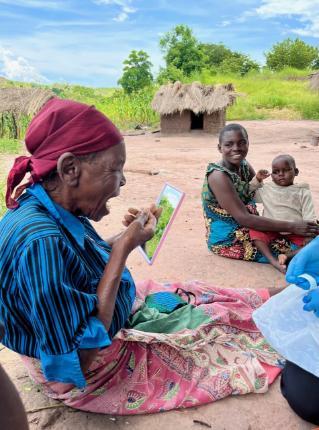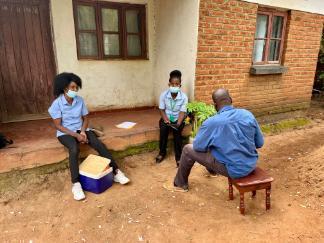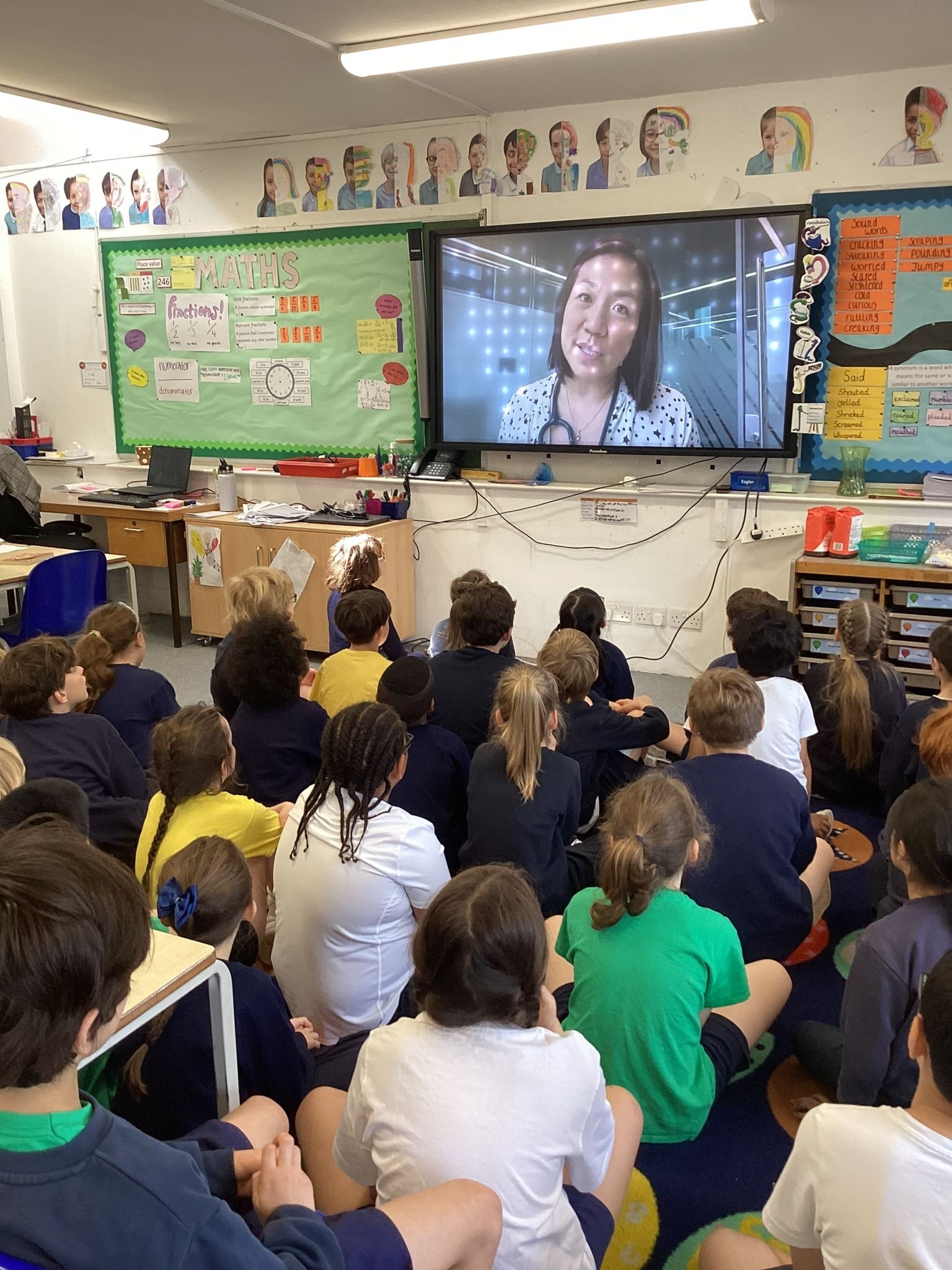Clinical Viral Epidemiology Group
Research Overview
Research
Acute respiratory infections (ARI) are the commonest cause of illness in all ages, and are also a leading cause of mortality worldwide. The advent of molecular diagnostic tests has led to the growing recognition that respiratory viruses cause a substantial proportion of ARI.
The research of the Clinical Viral Epidemiology Group aims to:
- Characterise the burden, epidemiology, and transmission of respiratory viral infections
- Define risk factors for severe disease
- Evaluate viral-bacterial and viral-viral interactions
- Improve the diagnosis of respiratory viral infections, using next-generation sequencing techniques and evaluating novel diagnostic platforms
- Design and evaluate optimum preventative strategies to reduce the burden of ARI
Current research
Metagenomics and target enrichment next-generation sequencing to improve diagnosis of respiratory viruses in Malawi and the UK.
A causative organism is seldomly identified in pneumonia due to limitations of existing microbiological tests. This absence of a definitive microbiological diagnosis drives empirical broad-spectrum antibiotic use, thus contributing to growing antimicrobial resistance and poor outcomes. More sensitive diagnostic methods and innovative discovery of pathogens are needed to better characterise the aetiology of pneumonia and thereby effectively target future interventions.
We are using metagenomic and target-enrichment next-generation sequencing (NGS) to respiratory samples obtained from adults admitted to hospital with pneumonia in Blantyre, Malawi and Glasgow, UK. Characterisation of novel, clinically important viruses will inform the development of context-specific viral diagnostic tests that is suitable for use in low-resource settings.
Sero-epidemiology of SARS-CoV-2, RSV and other pathogens in Malawi
We are conducting a multi-site serial cross-sectional serosurveillance study targeting SARS-CoV-2 in addition to a number of key vaccine-preventable pathogens, and arboviruses. This Gates Foundation-funded project is a collaboration between the MLW, MEIRU, PHIM, Liverpool School of Tropical Medicine (LSTM), University College London (UCL) and the CVR.
In response to the advent of novel RSV vaccines and recombinant monoclonal antibody (nirsevimab), we are also characterising the sero-epidemiology of RSV in population cohorts in Scotland, Germany and Malawi, in collaboration with the Helmholtz Centre for Infection Research (HZI) and MLW.
Impact of HIV and TB infection on the lower respiratory tract microbiome in Malawian adults
HIV-infected individuals have increased susceptibility and severity of acute respiratory infections, including tuberculosis (TB), compared to HIV-uninfected persons. The impact of HIV and TB on the lung microbiome is unknown. We are applying metagenomic NGS approaches to compare the lower respiratory tract microbiome and immune responses in healthy HIV-infected and HIV-uninfected adults in Malawi, those with confirmed pulmonary TB in HIV-infected and HIV-uninfected adults. This project is conducted in conjunction with MLW, Kamuzu University of Health Sciences (KuHES) and CVR.
Tackling emerging infections in the UK
Professor Ho coordinates the recruitment to the WHO ISARIC Clinical Characterisation Protocol UK (CCP-UK) study in Scotland (https://isaric4c.net) and she is the academic lead for the clinical sample biobank in Scotland. We have recently recruited patients for COVID-19, monkeypox and enteroviral myocarditis, and led the research investigation into the outbreak of paediatric hepatitis of unknown aetiology.
Syndromic surveillance of severe acute respiratory illness in Greater Glasgow (CHARISMA)
In collaboration with Public Health Scotland (PHS) and Professor David Lowe, we are leading an enhanced syndromic surveillance to evaluate the contribution of influenza, SARS-CoV-2 and other respiratory viruses to patients with severe acute respiratory illness (SARI) at the Queen Elizabeth University Hospital, Glasgow. This study aims to generate near real-time surveillance data using an NHS-approved digital data collection tool and multiplex respiratory viral point-of-care test.
Bacterial co-infection and antimicrobial use in hospitalised influenza and COVID-19 patients in the UK
We have previously shown that bacterial co-infections were rare among hospitalised COVID-19 patients enrolled in the ISARIC CCP-UK study in the first wave, but antimicrobial use was very high. We are now working with the UK Health Security Agency and the Usher Institute, University of Edinburgh to evaluate the prevalence and aetiology of bacterial co-infections, in addition to patterns of antimicrobial use in hospitalised COVID-19 patients in England in subsequent waves. This work is funded by the British Society for Antimicrobial Chemotherapy (BSAC).
Real-world effectiveness of RSV vaccines in pregnant women to protect infants in Scotland
Led by Dr Louisa Pollock, the Pfizer-funded study will evaluate the real-world effectiveness of RSV vaccines given to pregnant women to protect young infants, through the analysis of linked healthcare data of the Scottish population in the National Safe Haven.


Research group members
 |
||
| Antonia Ho Principal Investigator |
||
 |
 |
 |
| Sarah McDonald Biobank Manager |
Harrison Bott PhD Student |
Mhairi McCormack PhD Student (Blog Post) |
 |
 |
 |
| Kirsty Kwok PhD Student |
John Kelly PhD Student |
Louisa Pollock Clinical Senior Lecturer |
 |
 |
|
| Andrew Mwale PhD Student |
Anastasia Theodosiou Clinical Lecturer |
Recent Engagement
- The Economist podcast. Listen here: What is causing the mysterious outbreak of hepatitis in children?
- BBC News: Covid deaths rise as booster vaccine take-up falls
- BBC News: Why are ethnic minority groups falling behind on vaccines?
- CVR YouTube channel: COVSERO: SARS-CoV-2 Immuno-epidemiology in Urban and Rural Cohorts in Malawi



